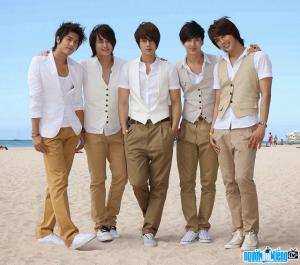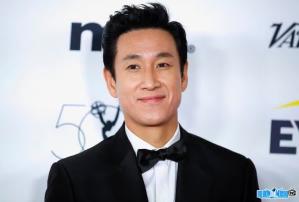Band Wonder Girls
Index of content:
Wonder Girls
Working place: Seoul
Founding day: 10-2-2007 (19 years old)
Population of the world 2007: 6.7 billions
Global rank: #2283
Facebook: facebook.com/wondergirlsworld/
Email: updating
Phone number: updating
Who is Band Wonder Girls?
Wonder Girls is a famous Korean girl group, once considered "national little sisters", "national artists", "national girl group"... Wonder Girls is a rare group of Kpop get rid of the 7 year curse. Wonder Girls was founded by a famous singer-songwriter and producer Park Jin Young JYP Entertainment's manager. In 2008, Wonder Girls won 2 Daesangs for the song "Nobody". The typical music style of Wonder Girls is Retro Pop, a Pop music genre with a nostalgic sound, inspired by world music in the 20th century. Although the market is volatile, the Wonder Girls still retain their unique musical style.
Wonder Girls are selected through company auditions. The group gained attention in the fall of 2007 with the song "Tell Me". Since then, Wonder Girls have had many big hits such as: "So hot", "Tell me", "2 Different Tears", "Be my baby"...
In 2009, Wonder Girls entered the US market. with the opening performance of The Jonas Brothers' World Tour. Wonder Girls performed English hit "Nobody". At the end of 2009, the song "Nobody" ranked at number 76 on the Billboard Hot 100. Wonder Girls became the first Korean group to enter this prestigious music chart. To date, the Wonder Girls have sold 19,000 albums in the US.
In 2010, the Wonder Girls entered the Chinese market with the compilation album "Wonder Girls" including the Chinese version of the group's huge hits such as: "Tell Me", "So Hot" and "Nobody"...
In 2012, the Wonder Girls signed with Defstar Records, a subsidiary of Sony Music Japan, to debut in Japan.
Wonder Girls disbanded on January 26, 2017 after JYP Entertainment made an official announcement. JYP Entertainment uploaded on Youtube a clip titled "THANK YOU FOR BEING SO WONDERFUL" summarizing the best moments of Wonder Girls in 10 years of operation. Wonder Girls released the last song on February 10, 2017, celebrating the group's 10th anniversary in the K-pop scene.
Wonder Girls' member (10-year journey, 7 girls and 4 girls) lineup)
Wonder Girls is a famous Korean girl group, once considered "national little sisters", "national artists", "national girl group"... Wonder Girls is a rare group of Kpop get rid of the 7 year curse. Wonder Girls was founded by a famous singer-songwriter and producer Park Jin Young JYP Entertainment's manager. In 2008, Wonder Girls won 2 Daesangs for the song "Nobody". The typical music style of Wonder Girls is Retro Pop, a Pop music genre with a nostalgic sound, inspired by world music in the 20th century. Although the market is volatile, the Wonder Girls still retain their unique musical style.
Wonder Girls are selected through company auditions. The group gained attention in the fall of 2007 with the song "Tell Me". Since then, Wonder Girls have had many big hits such as: "So hot", "Tell me", "2 Different Tears", "Be my baby"...
In 2009, Wonder Girls entered the US market. with the opening performance of The Jonas Brothers' World Tour. Wonder Girls performed English hit "Nobody". At the end of 2009, the song "Nobody" ranked at number 76 on the Billboard Hot 100. Wonder Girls became the first Korean group to enter this prestigious music chart. To date, the Wonder Girls have sold 19,000 albums in the US.
In 2010, the Wonder Girls entered the Chinese market with the compilation album "Wonder Girls" including the Chinese version of the group's huge hits such as: "Tell Me", "So Hot" and "Nobody"...
In 2012, the Wonder Girls signed with Defstar Records, a subsidiary of Sony Music Japan, to debut in Japan.
Wonder Girls disbanded on January 26, 2017 after JYP Entertainment made an official announcement. JYP Entertainment uploaded on Youtube a clip titled "THANK YOU FOR BEING SO WONDERFUL" summarizing the best moments of Wonder Girls in 10 years of operation. Wonder Girls released the last song on February 10, 2017, celebrating the group's 10th anniversary in the K-pop scene.
Wonder Girls' member (10-year journey, 7 girls and 4 girls) lineup)
- Yubin real name Kim Yoo Bin was born on October 4, 1988
- Yeeun real name Park Ye-eun was born on May 26, 1989
- Sunye real name Min Seon-ye was born on August 12, 1989
- Sunmi real name Lee Seon-mi born on May 2, 1992
- HyunA real name Kim Hyeon -ah was born on 6/6/1992
- Sohee real name Ahn So-hee was born on June 27, 1992
- Hyelim real name Woo Hye-rim was born on September 1, 1992
Close relationship
Who is Girl friend/ wife/ darling members Band Wonder Girls?
Updating!
Updating!
How tall is Band Wonder Girls? What Wonder Girls's weight?
Height: updating
Weight: updating
Measurements: updating
Height: updating
Weight: updating
Measurements: updating
When was Band Wonder Girls born?
Wonder Girls Founding day 10-2-2007 (at the age of 19).
Where is Band Wonder Girls's birth place, what is Zodiac/Chinese Zodiac?
Wonder Girls was born in Seoul, of South Korean. Mr, whose Zodiac is Aquarius, and who Chinese Zodiac is The Dog. Wonder Girls's global rank is 2283 and whose rank is 34 in list of famous Band. Population of the world in 2007 is about 6.7 billions persons.
Wonder Girls Founding day 10-2-2007 (at the age of 19).
Where is Band Wonder Girls's birth place, what is Zodiac/Chinese Zodiac?
Wonder Girls was born in Seoul, of South Korean. Mr, whose Zodiac is Aquarius, and who Chinese Zodiac is The Dog. Wonder Girls's global rank is 2283 and whose rank is 34 in list of famous Band. Population of the world in 2007 is about 6.7 billions persons.
Celebrities born in:
/
/

5 unique members of Wonder Girls

Golden Girls of Wonder Girls

Wonder Girls successful with Retro Pop genre
#34
Top famous Band
#146
Top famous Zodiac of Aquarius
#182
Top famous Chinese Zodiac of The Dog
#11
Top celebrities born in 2007
#29
Born in Seoul
Comment:
(Use English or Vietnamese)
Your name: Cotent:
Events in 2007 and 10-2
Events in the world in the birth year of Wonder Girls
- Romania and Bulgaria join the European Union, bringing the number of member nations to 27 (Jan. 1).
- Leaders of Hamas and Fatah, two rival Palestinian factions, meet in Mecca and reach a deal to end hostilities and form a unity government (Feb. 7). The Palestinian legislature approves a Hamas-dominated unity government (March 17). Hamas takes control of much of the Gaza Strip (June 13). Palestinian president Mahmoud Abbas dissolves the government, fires Prime Minister Ismail Haniya, the leader of Hamas, and declares a state of emergency (June 14).
- The U.S. begins its "surge" of some 30,000 troops to Iraq to stem increasingly deadly attacks by insurgents and militias (Feb. 7).
- The International Court of Justice rules that the slaughter of some 8,000 Bosnian Muslims by Bosnian Serbs in Srebrenica in 1995 was genocide (Feb. 26).
- David Hicks, an Australian, pleads guilty to providing material support to al Qaeda. He's the first Guantánamo Bay detainee to be convicted by a military commission (March 26).
- Iranian troops detain 15 Britons (eight sailors and seven marines) claiming they were in Iranian territorial waters (March 26). The detainees are freed (April 4).
- Gerry Adams, the leader of Sinn Fein, and Rev. Ian Paisley, the head of the Democratic Unionist Party, meet face-to-face for the first time and hash out an agreement for a power-sharing government (March 26).
- Ukrainian president Viktor Yushchenko dissolves Parliament and accuses Prime Minister Viktor Yanukovich of attempting to consolidate power (April 2).
- President Vladimir Putin announces Russia will suspend the 1990 Conventional Armed Forces in Europe Treaty, which limits conventional weapons in Europe (April 26).
- In the second round of French presidential elections, Conservative candidate Nicolas Sarkozy defeats Socialist candidate Ségolène Royal, 53.1% to 46.9% (May 6).
- A commission that investigated 2006's war between Israel and Lebanon says Israeli prime minister Ehud Olmert was responsible for "a severe failure in exercising judgment, responsibility, and prudence." It also says Olmert rushed to war without an adequate plan (April 30).
- Gordon Brown replaces Tony Blair as the prime minister of Great Britain (June 27).
- Russian president Vladimir Putin announces that the country will suspend its participation in the Conventional Forces in Europe Treaty, a cold-war era agreement that limits the deployment of heavy weaponry (July 14).
- India and U.S. reach an accord on civilian nuclear power that allows India, which has not signed the Nuclear Nonproliferation Treaty, to buy nuclear fuel from the U.S. to expand its civilian nuclear energy program and reprocess its spent fuel (July 27).
- President Ramos-Horta names independence activist Xanana Gusmão as prime minister of East Timor (Aug. 6).
- Two pairs of truck bombs explode about five miles apart in the remote, northwestern Iraqi towns of Qahtaniya and Jazeera, killing at least 500 members of the minority Yazidi community, making it the single deadliest insurgent attack of the war (Aug. 14).
- Abdullah Gul, of the Justice and Development Party, is elected president of Turkey in the third round of voting by the country's parliament. He is the first Islamist president in the country's modern history (Aug. 28).
- Japanese prime minister Shinzo Abe abruptly announces his resignation. The move follows a string of scandals and his party's recent defeat in parliamentary elections, in which his Liberal Democratic Party lost control of the upper house to the opposition Democratic Party (Sep. 12). Yasuo Fukuda is elected prime minister of Japan (Sep. 23).
- Seventeen Iraqi civilians are killed when employees of private security company Blackwater USA reportedly fire on a car that failed to stop at the request of a police officer (Sep. 16). The House Committee on Oversight and Government Reform finds that employees of Blackwater USA have been involved in some 200 shootings in Iraq. The report says the company paid some families of victims and tried to cover up other incidents (Oct. 1). The State Department announces that its own monitors will accompany Blackwater employees on all security convoys (Oct. 5). An FBI report says 14 of the 17 shootings were unjustified and the guards were reckless in their use of deadly force (Nov. 13).
- Nuon Chea, who was second-in-command to Pol Pot during the four years of Khmer Rouge rule that led to the state-sponsored massacre of between 1 million and 2 million Cambodians, is arrested and charged with war crimes (Sep. 19).
- After a month of peaceful pro-democracy demonstrations that include hundreds of monks, Burmese government forces shoot at crowds, raid pagodas, and arrest monks. Dozens of people are killed. The protests are the largest in Myanmar in 20 years (Sep. 26)
- In a landmark deal, North Korea agrees to disclose details about its nuclear facilities, including how much plutonium it has produced, and dismantle all of its nuclear facilities by the end of 2007. In exchange, the country will receive some 950,000 metric tons of fuel oil or financial aid. The Bush administration will also start the process of removing North Korea from its list of nations that sponsor terrorism (Oct. 1).
- Pakistani president Pervez Musharraf is easily reelected to a third term by the country's national and provincial assemblies. The opposition boycotts the vote, however, and only representatives from the governing party participate in the election (Oct. 6). Former Pakistani prime minister Benazir Bhutto arrives in Pakistan after eight years in exile (Oct. 18). Musharraf declares a state of emergency, suspends the country's constitution and fires Chief Justice Iflikhar Muhammad Chaudhry and the other judges on the Supreme Court (Nov. 3). The Supreme Court, filled with judges loyal to Musharraf, dismisses the case challenging the constitutionality of Musharraf being elected president while head of the military (Nov. 22). Former prime minister Nawaz Sharif returns to Pakistan after eight years in exile and demands that Musharraf lift the emergency rule and reinstate the dismissed Supreme Court justices (Nov. 25). Musharraf steps down as military chief. He is replaced by Gen. Ashfaq Parvez Kayani (Nov. 28). Musharraf is sworn in as a civilian president (Nov. 29). Former Pakistani prime minister Benazir Bhutto is killed in a bombing at a campaign rally in Rawalpindi (Dec. 27).
- Cristina Fernández de Kirchner is elected Argentina's first woman president. She succeeds her husband, Néstor Kirchner (Oct. 28).
- Australian prime minister John Howard loses to the Labor Party's Kevin Rudd (Nov. 24).
- A National Intelligence Estimate says "with high confidence" that Iran froze its nuclear weapons program in 2003. The report contradicts one written in 2005 that stated Iran was determined to continue developing such weapons (Dec. 3).
- The African National Congress chooses Jacob Zuma as its leader, ousting South African president Thabo Mbeki (Dec. 18).
- Violence breaks out between rival tribes after preliminary results in Kenya's presidential elections show opposition candidate Raila Odinga, of the Orange Democratic Movement, defeating incumbent Mwai Kibaki, 57% to 39% (Dec. 27).
Founding day Wonder Girls (10-2) in history
- Day 10-2 year 1763: The Treaty of Paris was signed, ending the French and Indian War. France ceded Canada and all North American territories east of Mississippi to Great Britain.
- Day 10-2 year 1837: Russian poet Alexander Pushkin was killed in a duel.
- Day 10-2 year 1840: Queen Victoria married Prince Albert.
- Day 10-2 year 1942: Glenn Miller received the first ever gold record for selling a million copies of "Chattanooga Choo Choo."
- Day 10-2 year 1962: The Soviet Union exchanged captured American U-2 pilot Francis Gary Powers for Rudolph Abel, a Soviet spy held by the United States.
- Day 10-2 year 1967: The 25th Amendment was ratified, establishing presidential succession.
- Day 10-2 year 1996: IBM's computer, Deep Blue, beat the world chess champion, Garry Kasparov, in the first game of their match.
- Day 10-2 year 2005: Pulitzer Prize winning playwright Arthur Miller died.
Other famous Band
Famous people born in Seoul
Note about Band Wonder Girls
Wonder Girls infomation and profile updated by nguoinoitieng.tv.











